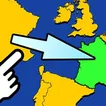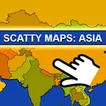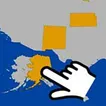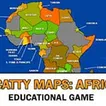

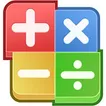




















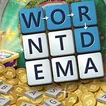


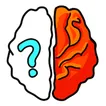

















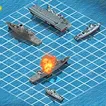



World Geography Games: Explore Continents and Cultures
Embark on a virtual journey with world geography games that span across continents, offering learners of all ages the chance to explore countries, capitals, and cultures through interactive map quizzes and engaging challenges. These games serve as a passport to the world, allowing players to traverse borders and oceans from the comfort of their homes or classrooms.
With each click, drag, or tap, users can immerse themselves in the diverse landscapes of our planet. From the bustling streets of Tokyo to the serene vistas of the Swiss Alps, geography games transform the learning experience into an adventure. They provide a dynamic platform for understanding the world’s geography, encouraging players to learn about the Earth’s physical features, political boundaries, and cultural landmarks.
These educational games are designed to be accessible and enjoyable, catering to various learning styles. Visual learners can benefit from colorful maps and images, while kinesthetic learners can engage with interactive elements. Auditory learners might enjoy games that incorporate sounds or music from different regions, enhancing the cultural experience.
The challenges presented in these games range from identifying countries and their capitals to recognizing flags, national animals, or traditional clothing. Some games might even delve into languages, greetings, and important historical events, offering a holistic view of each region’s unique identity.
By exploring continents and cultures through world geography games, learners can develop a global perspective, fostering respect and curiosity for the myriad of societies that make up our world. These games not only educate but also inspire a sense of global citizenship, preparing players to navigate and appreciate the rich tapestry of our interconnected world.
Interactive Geography Quizzes: Test Your Global Knowledge
Sharpen your geographical skills with a range of quizzes that cover the vast landscapes of the world, from the bustling cities of the United States to the diverse terrains of Africa and Asia. These interactive geography quizzes are designed to challenge your knowledge and provide a comprehensive understanding of world geography through fun and educational gameplay.
Whether you’re a seasoned traveler or a curious student, these quizzes offer a variety of questions that cater to all levels of expertise. You might find yourself pinpointing the location of a remote island, naming the capital of an emerging country, or identifying the river that cuts through a famous metropolis. Each quiz is an opportunity to learn and discover new facts about our world.
The interactive nature of these quizzes makes learning engaging and memorable. As you progress through different levels, you’ll notice your ability to quickly recognize countries and their features improving. The immediate feedback provided by these quizzes helps reinforce learning, turning what might once have been a guess into confident knowledge.
These quizzes are not just for individual learning; they can also be a tool for friendly competition. Challenge friends, family, or classmates to beat your high score, fostering a collaborative and competitive spirit that makes education a shared journey.
By regularly engaging with these interactive geography quizzes, you’ll build a mental map of the world that goes beyond memorization. You’ll understand the relationships between different regions, the significance of geographical features, and the global context that shapes our daily lives. Test your global knowledge today and become a geography whiz, one quiz at a time.
Map Games: Learn Geography in a Fun Way
Discover the joy of learning geography with map games that enhance spatial awareness and geographical knowledge. These interactive tools are a fantastic way for players of all ages to navigate through the different regions of the world, including the intricate geography of Europe and the island nations of Australia & Oceania.
Map games often involve dragging and dropping country shapes into their correct location on a blank map, challenging players to remember the physical layout of the world. As you play, you’ll find yourself becoming more familiar with the borders that define nations and the vast oceans that separate continents. The games can start simple, with larger countries and well-known locations, and progressively introduce smaller or less familiar territories, making the learning process both manageable and satisfying.
For those who love puzzles, these games are akin to completing a giant, global jigsaw. They require critical thinking and problem-solving skills, as players must discern subtle differences in country shapes and use clues from the surrounding geographical context. This active engagement with the map fosters a deeper understanding of the world’s geography than passive study methods.
Not only do map games reinforce knowledge of country locations, but they also often incorporate flags, major cities, and landmarks, adding layers of learning. The interactive aspect of these games makes them a hit in both classroom settings and at home, providing a fun way to review for tests, prepare for trips, or simply pass the time with an educational twist.
By learning geography in a fun and interactive way, map games help players develop a sense of place in the world, connecting them to distant locations and cultures with the click of a mouse or the swipe of a finger.
Advancing Geography Education with Technology
Technology has revolutionized the way we learn and understand the world around us, and geography education is no exception. The advent of apps and online platforms has made interactive geography games more accessible than ever, catering to a wide audience that includes students, educators, and homeschooling families.
These digital tools take advantage of multimedia elements to create immersive learning experiences. High-resolution images, videos, and even virtual reality can transport learners to different parts of the globe, offering a vivid understanding of various landscapes and cultures. Interactive elements such as quizzes, puzzles, and simulations engage users, making the learning process more dynamic and enjoyable.
One of the key benefits of using technology in geography education is the ability to track progress. Many online geography games come with built-in analytics that provide feedback on a learner’s performance, allowing for a more personalized and adaptive learning experience. This data-driven approach helps identify areas of strength and weakness, ensuring that learners focus on the content that challenges them the most.
Moreover, technology enables a collaborative learning environment. Students can compete with peers around the world, share their scores on leaderboards, or work together to solve geographical challenges. This not only fosters a sense of community but also encourages a global perspective, as learners interact with and learn from others across different cultures and regions.
In conclusion, technology has greatly enhanced geography education by making it more engaging, interactive, and tailored to individual learning needs. As we continue to develop and integrate new technological tools into educational practices, the potential for cultivating a more geographically literate and interconnected generation seems boundless.
